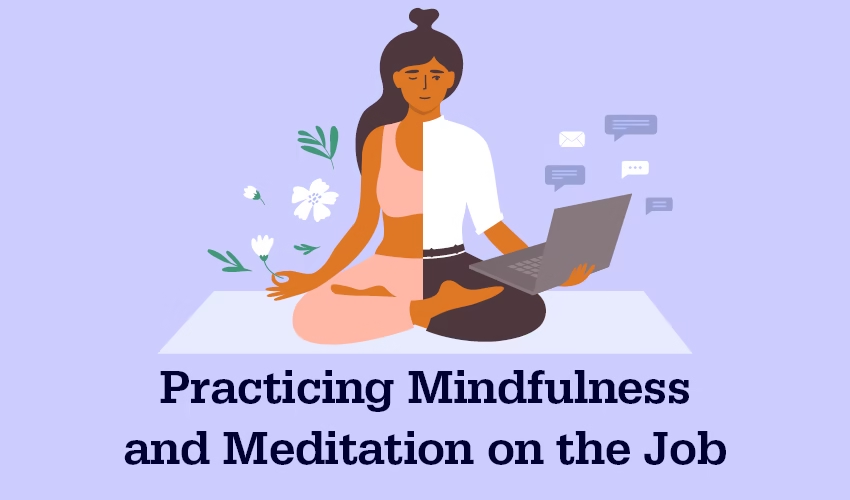In today’s fast-paced world, achieving mental clarity often feels like an elusive goal. Distractions, stress, and an overwhelming amount of information can cloud our minds, making it harder to focus, make decisions, and feel at peace. Enter mindfulness – a simple yet transformative practice that can help you regain mental clarity and live a more fulfilling life.
What is Mindfulness?
Mindfulness is the practice of being present in the moment, fully aware of your thoughts, feelings, and surroundings without judgment. It’s about slowing down and paying attention to the here and now, which can significantly reduce stress and enhance focus. This ancient technique, rooted in meditation traditions, is now widely recognized for its mental and physical health benefits.
The Benefits of Mindfulness for Mental Clarity
- Enhanced Focus: Mindfulness trains your brain to concentrate on the present, minimizing distractions and improving productivity.
- Reduced Stress: By focusing on the now, mindfulness helps you let go of worries about the past or future, promoting a sense of calm.
- Better Decision-Making: A clear mind leads to better problem-solving skills and sound decision-making.
- Improved Emotional Regulation: Mindfulness allows you to process emotions more effectively, reducing reactivity and promoting understanding.
How to Practice Mindfulness Daily
- Start with Breathing Exercises: Spend a few minutes each day focusing on your breath. Inhale deeply, hold for a moment, and exhale slowly. This simple act can ground you in the present.
- Practice Gratitude: Take a moment each day to reflect on what you’re thankful for. This can shift your focus away from stressors and towards positivity.
- Mindful Eating: Pay attention to the taste, texture, and aroma of your food. This not only enhances your eating experience but also prevents overeating.
- Body Scan Meditation: Close your eyes and bring your attention to each part of your body, starting from your toes and moving upward. This practice helps you reconnect with your physical self.
- Digital Detox: Dedicate some time each day to step away from screens. Use this time to connect with nature or enjoy a hobby.
How Mindfulness Can Help with Allergies
Stress is known to exacerbate allergies by weakening the immune system and triggering inflammatory responses. Mindfulness can play a supportive role by reducing stress and helping you manage symptoms more effectively. For more insights on managing allergies, check out our guide on allergy remedies.
Integrating Mindfulness into Your Wellness Routine
Mindfulness isn’t a one-size-fits-all approach. Experiment with different techniques to find what works best for you. Whether it’s a morning meditation, an evening reflection, or mindful moments throughout the day, consistency is key.
At Health Connect, we believe in a holistic approach to wellness. Explore our allergies category page for more resources that complement your mindfulness practice.
Final Thoughts
Mindfulness is more than just a trend; it’s a proven method to achieve mental clarity and overall well-being. By incorporating mindfulness into your daily routine, you can unlock a clearer, calmer, and more focused mind. Start your journey today and discover the transformative power of living in the moment.
FAQs About Mindfulness for Mental Clarity
1. What is mindfulness, and how does it help with mental clarity?
Mindfulness is the practice of being present and fully engaged in the moment. It helps clear mental clutter, improve focus, and reduce stress, leading to greater mental clarity.
2. How can I start practicing mindfulness?
Start with simple activities like mindful breathing, body scan meditation, or focusing on one task at a time. Even a few minutes a day can make a difference.
3. Can mindfulness help with stress and anxiety?
Yes, mindfulness is a proven technique to reduce stress and anxiety. It calms the mind by focusing on the present moment and helping you manage emotions effectively.
4. How does mindfulness support physical health?
Mindfulness can lower blood pressure, improve sleep, and strengthen the immune system by reducing stress-related physical symptoms.
5. Is mindfulness suitable for everyone?
Yes, mindfulness is a flexible practice that anyone can try. It can be tailored to individual needs, whether through meditation, mindful walking, or simply paying attention to daily activities.
6. Can mindfulness help with managing allergies?
While mindfulness doesn’t directly treat allergies, it reduces stress, which can help manage allergy symptoms more effectively. Explore our guide on allergy remedies for more insights.




